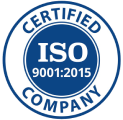Non Profit (Section 8) Company Registration
Starting from ₹3,000 + GST




Table Of Content
- Non-Profit (Section 8) Company Registration Made Easy
- Benefits of Non-Profit (Section 8) Company Registration
- Eligibility For Non-Profit (Section 8) Company Registration
- Process for Non-Profit (Section 8) Company Registration
- Documents Required for Non-Profit (Section 8) Company Registration
- FAQs
- Get in Touch with us
Non-Profit (Section 8) Company Registration Made Easy
A Section 8 Company registration, also known as a Non-Profit Company registration, is a company that operates to promote art, science, sports, education, research, social welfare, religion, charity, protection of the environment, or any other purpose, provided it intends to utilize its profits if any, or other income solely for promoting its objectives and prohibits the distribution of dividends to its members.
In simple terms, a Section 8 Company registration must promote a public cause, and the funds generated by the entity must be used exclusively to support the stated public cause.
There are three structures available for companies registered under Section 8 of the Companies Act 2013 or Section 25 of the Companies Act 1956: a trust, a society, or a Section 8 Company. Section 8 Company registration is more popular in India because it is easier to register and manage compared to a trust or society. Examples of Section 8 Companies include the Federation of Indian Chambers of Commerce and Industry (FICCI) and the Confederation of Indian Industry (CII).
Benefits of Non-Profit (Section 8) Company Registration
Distinct Legal Entity -
Similar to other private company registrations, a Section 8 Company has a separate legal entity distinct from its members, ensuring perpetual existence.
Tax Exemption
Section 8 Companies enjoy various tax exemptions, especially for donors contributing to them, who can claim tax exemptions against their donations to a Section 8 Company. Additionally, these companies are exempt from paying stamp duty applicable to other forms of registration like private or public limited companies.
Increased Credibility
Section 8 Company registration holds greater credibility compared to other forms of non-profit companies because it is licensed by the Central Government. It adheres to strict regulations, prohibiting changes in its Memorandum and Articles of Association at any stage. Unlike Private Limited Companies, Section 8 Companies are not required to add “Private Limited” to their name.
No Minimum Capital Requirement
One of the primary advantages of registering as a Section 8 Company is the absence of a minimum capital requirement, unlike public or private companies. This flexibility allows for adjustments in the capital structure as needed for the growth of the Section 8 Company.
Eligibility For Non-Profit (Section 8) Company Registration
Process for Non-Profit (Section 8) Company Registration
Step 1
Application for Name Approval
- The name approval process is a crucial initial step for Non-profit (Section 8) Company Registration. Two proposed names, listed in order of preference, along with the business objective and statutory fees, are submitted to the MCA.
- The chosen name must be unique and devoid of punctuation marks. If the MCA has any observations, resubmission is required, potentially delaying the process.
- Once the name is approved, it remains valid for 20 days, inclusive of weekends and holidays, during which all other formalities must be completed.
Step 2
Digital Signature Certificate Application
- A Digital Signature Certificate (DSC) is necessary for all shareholders and directors involved in Non-profit (Section 8) Company Registration.
- This online signature facilitates document filing. The DSC application can run parallel to the name approval process, as it’s not required for the name application if directors or shareholders already possess DSC.
Step 3
Documents Preparation and Form Submission
- Following DSC acquisition and name approval, the next step involves filling forms like Spice + Part, Agile Pro, Spice MOA, Spice AOA, and INC 9 with the MCA.
- These forms detail crucial information about the Non-profit (Section 8) Company, such as registered office, authorized capital, shareholding pattern, director and shareholder details, including addresses and educational qualifications.
- Supporting documents like the rent/title deed of the registered office and PAN card are necessary.
Step 4
Obtain Incorporation Certificate
- After submitting the documents and verification by the Registrar of Companies (ROC), you will receive the Certificate of Incorporation within 45-60 working days.
- This certificate acts as the company’s birth certificate and includes details such as the company name, registered address, Corporate Identity Number (CIN), and other relevant information.
Step 5
Bank Account Opening
- Upon obtaining the Incorporation certificate for Non-profit (Section 8) Company Registration, open a bank account in the company’s name.
- Submit the incorporation certificate, MOA, AOA, and other required documents to the bank. Before commencing business operations, deposit the proposed paid-up capital into the bank account and file INC-20A within 180 days of incorporation into the MCA to obtain the certificate of commencement.
Documents Required for Non-Profit (Section 8) Company Registration
For each Directors and Shareholders
For Address Proof of the new company
Additional Requirements For Foreign Nationals
FAQs
What is a Non-profit (Section 8) Company?
A Non-profit (Section 8) Company is a type of organization established for promoting charitable, educational, social, or other useful purposes, with profits directed toward these objectives.
What are the key objectives of a Section 8 Company?
The primary objectives of a Section 8 Company include promoting art, science, sports, education, social welfare, religion, charity, environmental protection, or any other public cause.
What are the benefits of registering as a Section 8 Company?
Benefits include separate legal entity status, limited liability, tax exemptions for donors, credibility, and no minimum capital requirement.
Can a Section 8 Company distribute dividends to its members?
No, a Section 8 Company cannot distribute dividends to its members. Any profits generated must be reinvested in furthering the company’s objectives.
How long does it take to register a Section 8 Company?
The registration process typically takes around 15-20 days, depending on the timely submission of documents and approvals.
What is the minimum number of members required for a Section 8 Company?
A Section 8 Company must have a minimum of two members to register.
Is there a requirement for a physical office for a Section 8 Company?
Yes, a Section 8 Company must have a registered office in India.
Can foreign nationals be directors of a Section 8 Company?
Yes, foreign nationals can serve as directors of a Section 8 Company, subject to compliance with Indian laws.
What are the compliance requirements for a Section 8 Company?
Compliance requirements include annual filings, maintaining statutory records, conducting board meetings, and adhering to tax regulations.
Can a Section 8 Company be converted into a for-profit entity?
No, a Section 8 Company cannot be converted into a for-profit entity. Any change in objectives must be approved by regulatory authorities and aligned with the company’s non-profit status.
